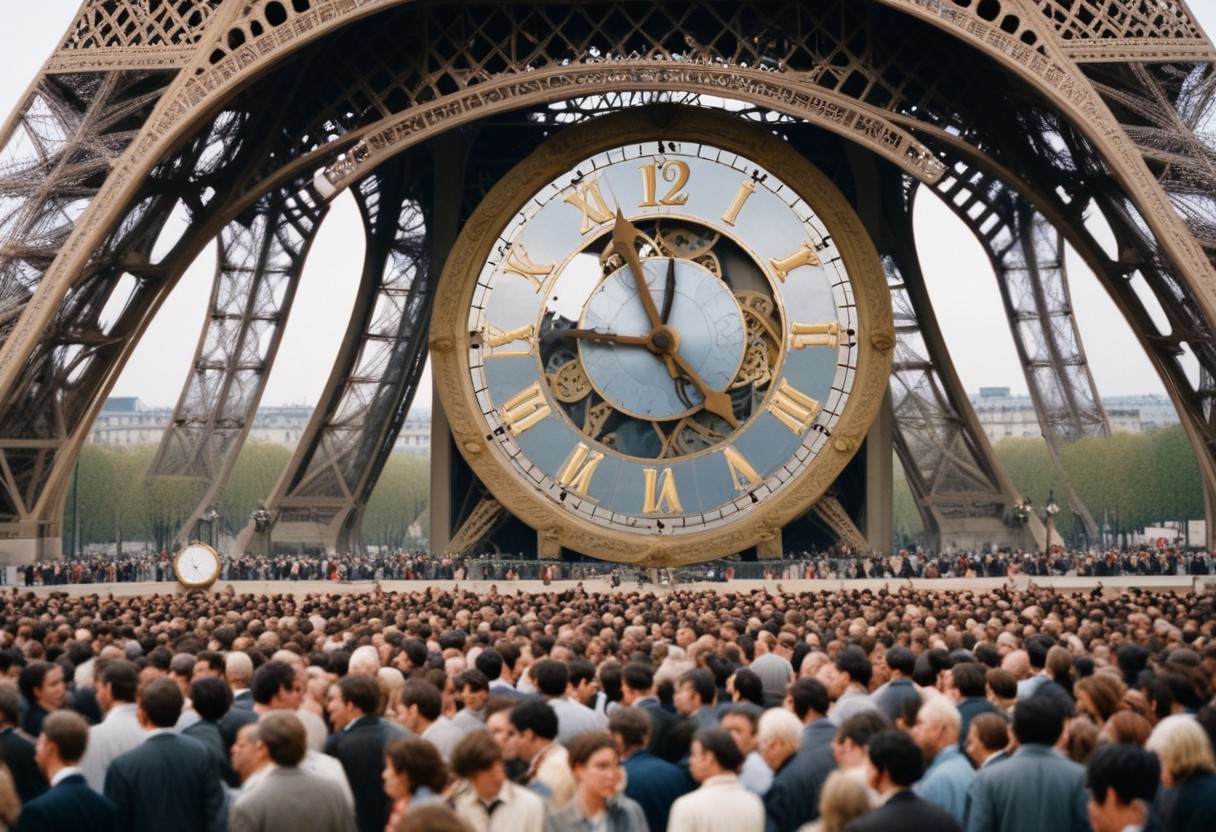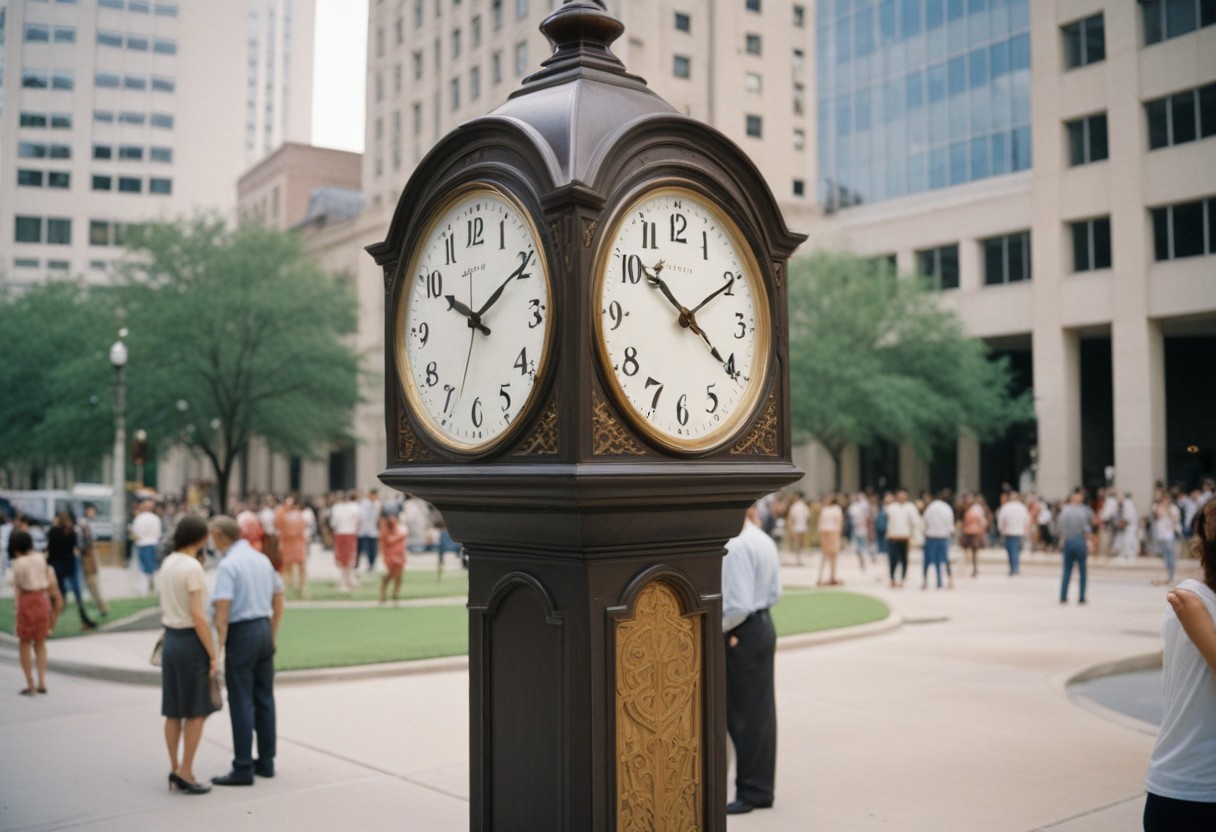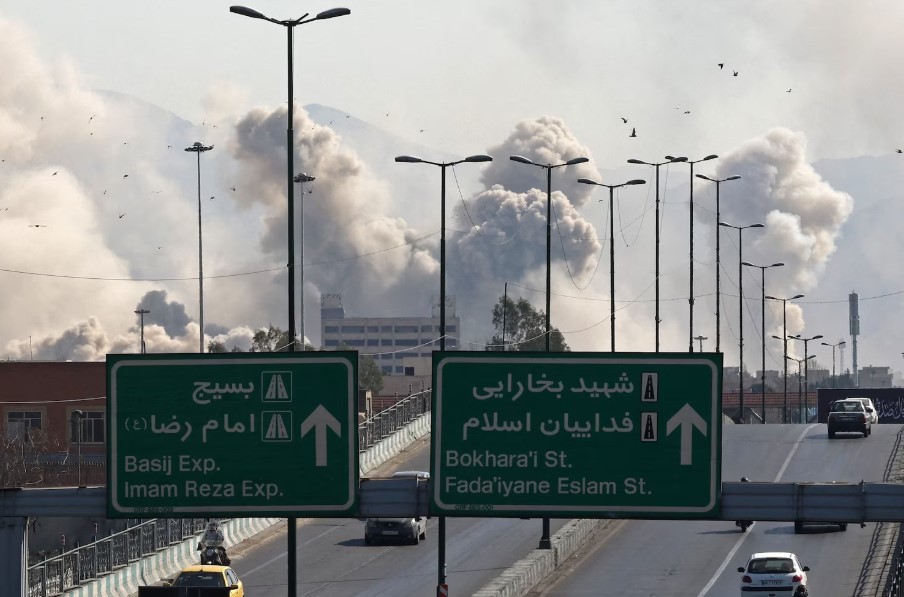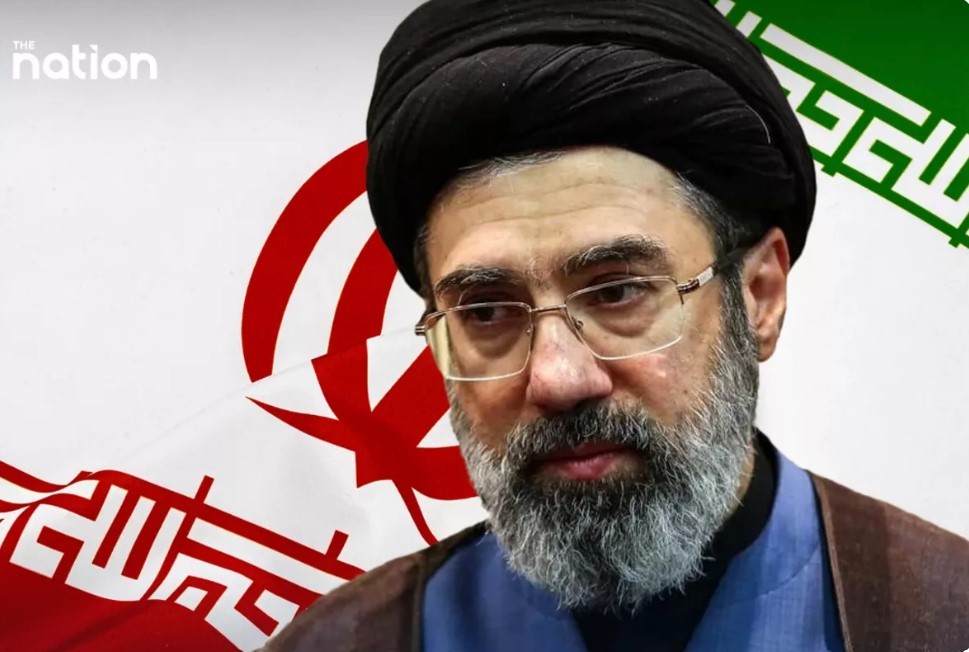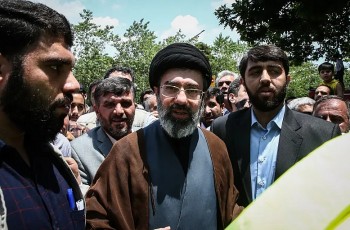What Time Is It In Moscow Now, How Many Time Zones In Russia
In Russia, time zones are quite important since they help with coordination and synchronization between various areas. They are essential to travel, communication, cross-border relationships, productivity, administrative effectiveness, and time management. Despite the country's breadth, the existence of multiple time zones guarantees effective operations and facilitates smooth collaboration between individuals, corporations, and governmental bodies.
Knowing all of Russia's time zones is crucial to appreciating the country's enormous geographic expanse and the effects it has on day-to-day living. The existence of numerous time zones facilitates effective operations and planning by guaranteeing coordination and synchronization across various regions.
 |
| What Time Is It In Moscow Now, How Many Time Zones In Russia |
How many time zones are there in Russia?
In Russia, there are eleven time zones with current times ranging from UTC+02:00 to UTC+12:00. Since October 26, 2014, Russia has not used daylight saving time (DST).
| UTC+02:00 (Kaliningrad Time) — Kaliningrad Oblast UTC+03:00 (Moscow Time) — Most of European Russia and all railroads throughout Russia UTC+04:00 (Samara Time) — Samara Oblast, Udmurtia UTC+05:00 (Yekaterinburg Time) — Bashkortostan, Chelyabinsk Oblast, Khanty–Mansia, Kurgan Oblast, Orenburg Oblast, Perm Krai, Sverdlovsk Oblast, Tyumen Oblast, and Yamalia UTC+06:00 (Omsk Time) — Altai Krai, Altai Republic, Kemerovo Oblast, Novosibirsk Oblast, Omsk Oblast and Tomsk Oblast UTC+07:00 (Krasnoyarsk Time) — Khakassia, Krasnoyarsk Krai and Tuva UTC+08:00 (Irkutsk Time) — Buryatia, Zabaykalsky Krai and Irkutsk Oblast UTC+09:00 (Yakutsk Time) — Amur Oblast and western Sakha Republic UTC+10:00 (Vladivostok Time) — The Jewish Autonomous Oblast, Khabarovsk Krai, Magadan Oblast, Primorsky Krai, central Sakha Republic and Sakhalin Island UTC+11:00 (Srednekolymsk Time) — eastern Sakha and Kuril Islands UTC+12:00 (Kamchatka Time) — Chukotka and Kamchatka Krai |
Russian Time Zone Influencers
Numerous variables that take into account a nation's physical, political, historical, and economic characteristics affect how time zones are established. Russia has various time zones because of a number of important causes, including:
Regional Range
With a landmass extending from Europe to Asia, Russia is the largest nation on Earth. Because the nation spans several longitudes, there are notable differences in solar time. Russia's huge geographical area makes the establishment of many time zones necessary to maintain uniform timekeeping throughout its vast territories.
Boundaries of Politics
Time zones are also influenced by political boundaries. Russia is organized into a number of administrative units, such as republics, oblasts, krais, and autonomous okrugs. To maintain time synchronization within that specific area, each administrative division may have its own time zone.
Historical Elements
The creation of time zones can also be influenced by historical circumstances. The current distribution of time zones throughout Russia is a result of the country's historical territorial expansion, political boundary changes, and development. Russia's time zones are a result of the country's regional divisions and administrative shifts over history.
Financial Aspects
Time zone differences are also influenced by economic factors. Russia's various regions may have unique industry, trade partners, and economic activity. The implementation of distinct time zones facilitates the effective synchronization of transportation and logistics networks, commercial operations, and communication with global partners.
Global Harmonization
International agreements and norms are also the basis for the establishment of time zones. International time discrepancies are calculated using Coordinated Universal Time (UTC). Russia and other nations establish their time zones based on the UTC offset, which is the difference in time between a certain time zone and UTC.
Consistency and Arrangement
Coordinating and maintaining uniformity are essential when creating time zones. Standardized time zones facilitate the synchronization of activities, planning of transportation routes, scheduling of international communication, and maintenance of effective operations across many locations in a country like Russia. Maintaining consistent timekeeping makes it easier for different administrative branches to coordinate and guarantees efficient operations inside the nation's boundaries.
Russia's geographical size, political boundaries, historical trends, economic factors, international standards, and the necessity for coordination and consistency all have an impact on the creation of time zones. Together, these elements give rise to Russia's various time zones, which facilitate effective timekeeping and activities throughout its enormous territory.
READ MORE: What Is The Capital of Russia: History, Facts, Best Places to See
Russia's Reliance on Time Zones
Russia is a large country with many diverse regions that require cooperation and synchronization, therefore time zones are important. Time zones are significant in Russia for the following main reasons:
Syncretation and Coordination
Time zones allow for the synchronization and coordination of activities within and between Russian regions. Different sectors and businesses can work in accordance with standardized time references thanks to different time zones, which encourages productivity and smart planning.
Travel and Transportation
Traveling within Russia is made easier by the existence of time zones. Railways, air travel, and other forms of transportation all depend on precise timekeeping for scheduling and seamless communication. Time zones facilitate the synchronization of schedules, empowering tourists to arrange their itineraries and establish contacts with ease throughout the nation.
Interaction and Cooperation
For people, companies, and government agencies in Russia to collaborate and communicate effectively, time zones are necessary. Standardized time references facilitate the scheduling of meetings, virtual communication, and guarantee that partners located in disparate locations are in agreement with common objectives and activities.
Global Exchanges
The time zones of Russia affect international relations as well as economics, diplomacy, and foreign alliances. It is imperative to take into account time variations while interacting with overseas counterparts because different locations operate in different time zones. Respecting certain time zones guarantees coordinated communication, prompt responses, and efficient collaboration with international partners.
Efficiency in Administration
Russia benefits from having various time zones, which increases administrative efficiency. It enables regional authorities to manage local affairs, public services, and government operations effectively. The implementation of distinct time zones optimizes administrative procedures and guarantees seamless operation at the regional level, hence augmenting the overall efficacy of governance.
Productivity and Time Management
In Russia, time zones facilitate efficient time management and increased productivity. Individuals and organizations can enhance productivity during working hours, organize their schedules, and allocate resources efficiently by adhering to established time standards. Time zones give people a framework for organizing and arranging their everyday activities, enabling them to maximize their time.
What is Moscow’s time zone?
 |
UTC +3 Moscow Standard Time (MSK)
Moscow does not change between summer time and winter time.
The IANA time zone identifier for Moscow is Europe/Moscow.
Sunrise, Sunset, Day length and Solar time for Moscow
Sunrise: 04:06
Sunset: 20:46
Day length: 16h 40m
Solar noon: 12:26
The current local time in Moscow is 26 minutes ahead of apparent solar time.
Time Difference Between Moscow and Other Cities
Los Angeles −10 hours
Chicago −8 hours
New York −7 hours
Toronto −7 hours
São Paulo −6 hours
UTC −3 hours
Lagos −2 hours
London −2 hours
Johannesburg −1 hours
Paris −1 hours
Zurich −1 hours
Cairo 0
Istanbul 0
Dubai +1 hours
Mumbai +2.5 hours
Hong Kong +5 hours
Shanghai +5 hours
Singapore +5 hours
Tokyo +6 hours
Sydney +7 hours
 What Time Does Euronext Paris Stock Exchange Open and Close? What Time Does Euronext Paris Stock Exchange Open and Close? Learn about what time Euronext Paris stock exchange opens and closes. |
 What Time Is It In Hawaii? What Time Is It In Hawaii? How many time zones and what time is it in Hawaii? Scroll down to explore the information about time in Hawaii |
 What Time Is It In New York Now: Time Zone, Time Difference, Clock, Jet Lag and Seasons What Time Is It In New York Now: Time Zone, Time Difference, Clock, Jet Lag and Seasons What time is it in New York now? Is there any difference among US states' time zone? |


